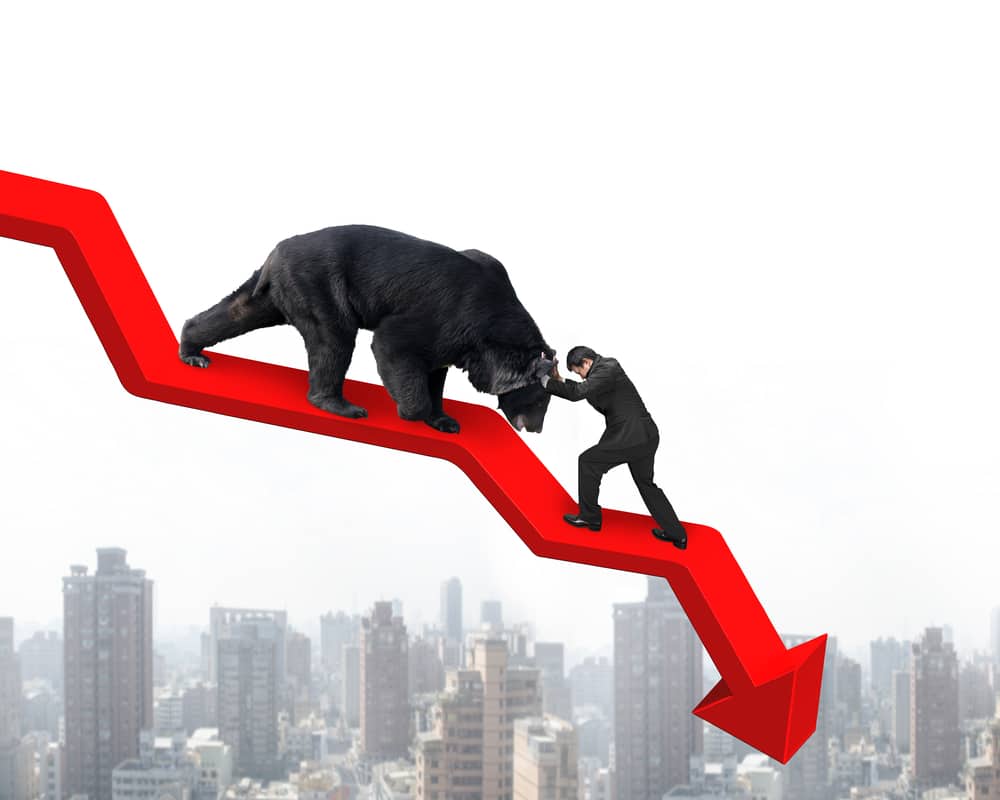The value of stocks and shares ISAs will fluctuate just as they would if they were held outside of the tax-efficient ISA wrapper. Share prices are subject to swings, that is, they rise and fall in value.
These share price changes are driven by factors including supply and demand, changes in investor sentiment, and new information about individual companies or sectors. And even macroeconomic data and global events.
Over the longer term, share prices have historically risen in value. Time in the market can, therefore, be an investor’s greatest asset.
However good stock selection or portfolio construction is also key in achieving long-term capital growth. If you have the right stocks in your ISA over the longer term then you should see their values rise even if they dip in value at some point.
Why might my ISA be worth less?
The value of the stocks, shares, and funds, held in ISA will reflect what’s happening to the wider market.
In a bull market, share prices rise as investors want to own more stocks as they are prepared to pay a higher valuation to do so.
On the other hand, in a bear market, investors become fearful; they sell stocks and other risky assets, and the valuations of those stocks and shares fall.
In these conditions, the valuations, or prices of stocks and shares, will fall until such time as buyers are tempted back into the market.
And, when the demand for stocks and shares outstrips the available supply, share prices will rise as the market seeks to find the price point at which sellers can be attracted into the market once more.
The average length of a bear market in equities since 1929 is ten months, or just under 290 days, according to data from Hartford Investors and Ned Davis Research.
However, the average length of a bull market in equities is approximately 46 months. That differential goes some way to explaining the long-term upside bias in the world’s stock markets and indices.
As we have already noted stock selection and portfolio construction are key when it comes to long-term performance.
However, it’s also important to realise that paying high fees and charges, can dramatically affect your returns over time.
Returns that are boosted by what’s known as compounding.
High charges can eat into, and dramatically reduce these compounding returns, which in turn can limit the growth of your investments.
Are ISA investments guaranteed not to lose money?
No, they are not guaranteed to lose money. The ISA wrapper simply ensures that you do not pay tax on income and capital gains accrued within your ISA.
All investing carr,ies a degree of risk. The higher the risk the higher your potential returns might be.
Investing in stocks and shares is risky and there is a genuine chance that you could lose money, particularly over the short term.
Some investors prefer to mitigate that risk by leaving their money in cash deposits to earn interest. However, even this is not risk-free because the value of those cash deposits and the interest earned on them can still be undermined by inflation.
Some ISA providers offer a guarantee on your money. For example, Scottish Friendly’s My Easy Choice ISA provides a guaranteed return over 10 years based on investment into with-profits funds.
To benefit from the guarantee, you need to save a regular monthly amount and leave the investment in the with-profits funds for the full period.
So, for example, if you invest £50 per month for 10 years you will build up a pool of £6,000 which is the minimum you can expect to have in your ISA.
However, if the with-profits funds grow at 5.0% per annum your pot will be worth an estimated £7,150 and with 8.0% growth per annum, it could be worth £8,330.
By comparison, an investment of 50 per month for 10- years into a cash ISA could be worth £7,750, assuming that interest rates are at 5.0% during the term. It’s also interesting to note that a basic rate UK taxpayer would make £391.00 of tax-free savings in their ISA. by doing this.
Will the stocks and shares held in my ISA ever recover?
Though there will always be exceptions to the rule, the likelihood is that stocks and shares held in your ISA will recover in value.
For example, since March 2020 the FTSE 100 index has risen in value by +27.90% which means that the index has recovered almost all of its Covid-19 losses.
Whilst, the US S&P 500 index has risen by more than 90.0% during this time frame, and is now some 3000 points above its Covid-19 lows.
Investors need to bear in mind, however, that stocks have a life cycle.
And as part of that life cycle stocks will experience peaks and troughs in performance, as leadership and trends in the stock market change.
Part of being a successful investor is learning to recognise when these changes are happening and adjusting your holdings accordingly.

With over 35 years of finance experience, Darren is a highly respected and knowledgeable industry expert. With an extensive career covering trading, sales, analytics and research, he has a vast knowledge covering every aspect of the financial markets.
During his career, Darren has acted for and advised major hedge funds and investment banks such as GLG, Thames River, Ruby Capital and CQS, Dresdner Kleinwort and HSBC.
In addition to the financial analysis and commentary he provides as an editor at GoodMoneyGuide.com, his work has been featured in publications including Fool.co.uk.
As well as extensive experience of writing financial commentary, he previously worked as a Market Research & Client Relationships Manager at Admiral Markets UK Ltd, before providing expert insights as a market analyst at Pepperstone.
Darren is an expert in areas like currency, CFDs, equities and derivatives and has authored over 260 guides on GoodMoneyGuide.com.
He has an aptitude for explaining trading concepts in a way that newcomers can understand, such as this guide to day trading Forex at Pepperstone.com
Darren has done interviews and analysis for companies like Queso, including an interview on technical trading levels.
A well known authority in the industry, he has provided interviews on Bloomberg (UK), CNBC (UK) Reuters (UK), Tiptv (UK), BNN (Canada) and Asharq Bloomberg Arabia.
You can contact Darren at darrensinden@goodmoneyguide.com





